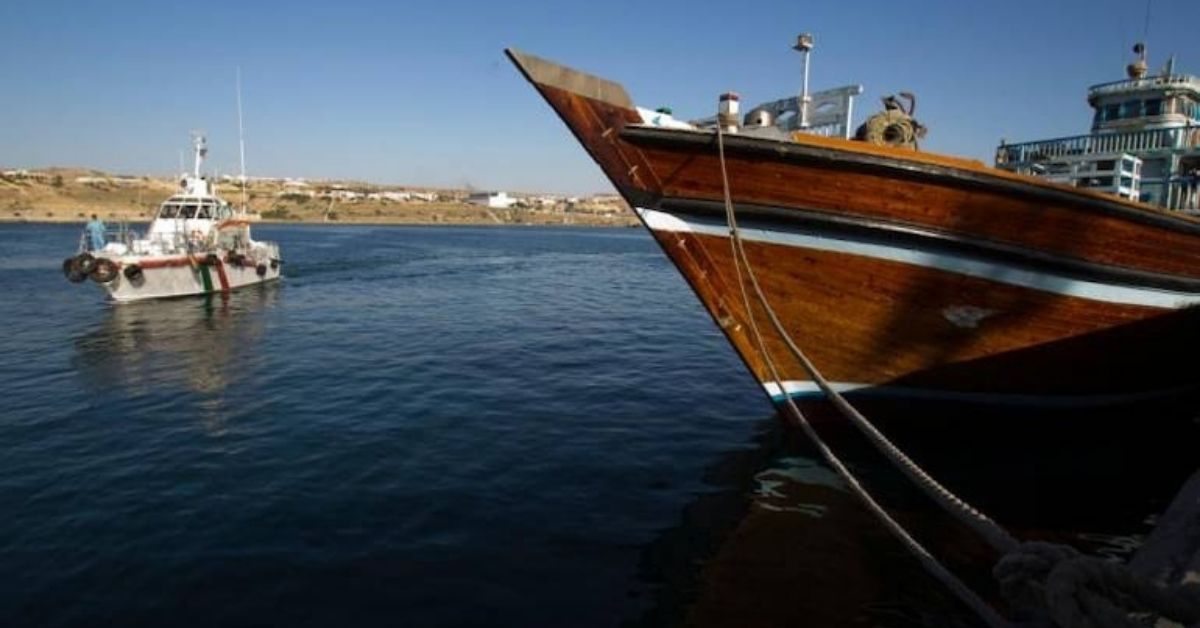Afghanistan, now largely controlled by the Taliban, will not be part of the quadrilateral nation grouping proposed to discuss the use of Chabahar port (Iran), along with India, Uzbekistan and Iran, sources say. These nations were set to meet later this year to paper over the issues that have cropped up over the International North South Transport Corridor (INSTC).
The 7200-km long INSTC is India’s grand plan to cut short the time it takes for trade shipments to reach Europe and enter the central Asian markets, and vice versa. It incorporates thousands of kilometres of all-weather highways from the city of Chabahar in the south, through Azerbaijan in the north, and onwards to Russia and Europe.
While the INSTC has remained a major priority for India, the plan will not have Afghanistan – a key component – in discussions on Chabahar port, sources in the Ministry of External Affairs (MEA) clarified. Last month, New Delhi had proposed the India-Uzbekistan-Iran-Afghanistan Quadrilateral Working Group on the joint use of Chabahar port.
Immediate Impact
The Afghan government had been a major stakeholder in the talks since the multi-nation trade route had been developed by India along with Iran to provide a trade route for Afghanistan that bypassed Pakistan. Its absence is set to effectively stop plans of goods from Chabahar port reaching land locked Afghanistan, which was earlier set to come up as an important node of the INSTC.
Persistent diplomatic standoffs that have pitched Islamabad on one hand and Kabul and New Delhi in another. This had led to Pakistan blocking India and Afghanistan from accessing each other through it’s land area over the past few years.
“The INSTC was planned to provide Afghan businesses a channel to export their products to the outside world and ensure that large scale Indian goods could reach Afghanistan unimpeded,” a senior MEA official said.
This in turn may slow India’s overall efforts to establish more connectivity and trade with the high potential markets of the adjoining Commonwealth of Independent States (CIS) countries, a senior Commerce Department official said.
“This grouping of ex-soviet nations spread across East Europe and Central Asia often have tenuous relations with the West and have increasingly increased their imports from China”, he added. Eight of the nine CIS nations are now part of the INSTC, along with Oman, Syria and Bulgaria..
Major exports to the region are pharmaceuticals, machinery, coffee, tea and spices. Countries in the region are considered underserved markets and are potential suppliers of energy and minerals to India.
Slow movement
The INSTC is also an important peg in India’s geopolitical plan of expanding influence in the Central Asian region, where countries have historically been friendly towards New Delhi.
Through this transportation route, Indian exports get a significant competitive advantage due to lower cost and less delivery time. However, it has had a slow start, more than four years after it was launched. According to the Federation of Freight Forwarders’ Associations in India (FFFAI), the average shipment time for cargo containers travelling between Mumbai and St Petersburg, Russia fell from 35-40 days to 20-22 days through INSTC.Talks on the new route started in 2000 and the initial agreement was signed in 2003. A successful dry run was conducted through Iran, Azerbaijan and Russia in 2014.
Source : Money Control







